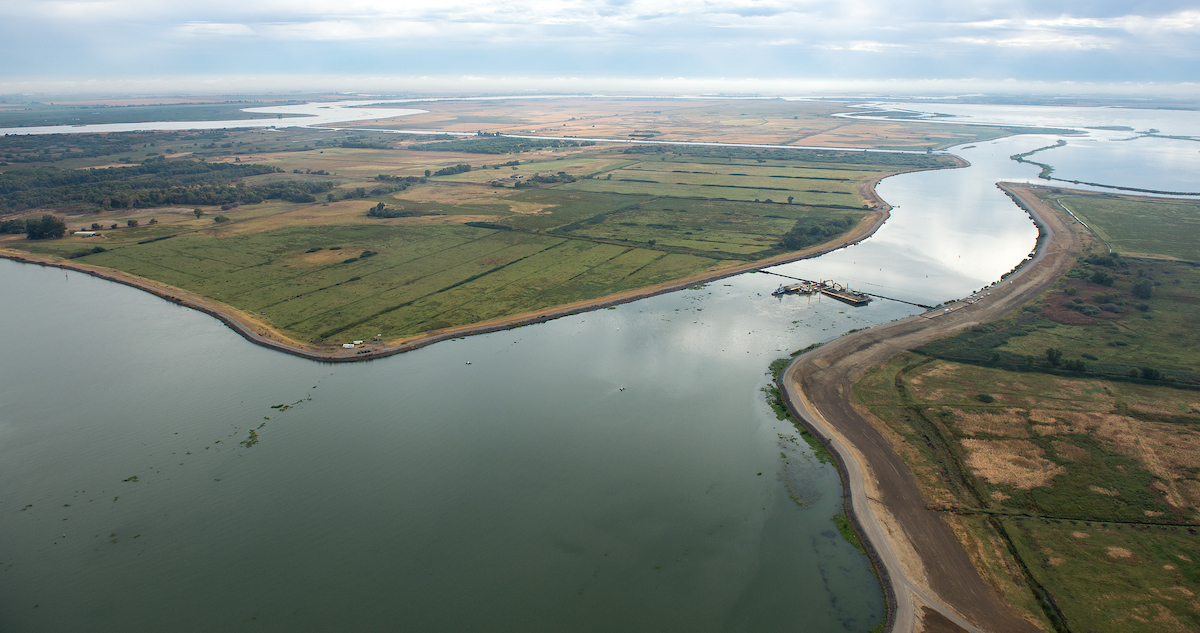What To Know As Delta Tunnels Get Boost
T

#CAwater politics and the #DeltaTunnels are confusing as all get out. @dakasler and I try to answer some pressing questions about yesterday's historic @mwdh2o vote https://t.co/flISRVD4Pg
— Ryan Sabalow (@RyanSabalow) April 12, 2018
Salmon conservationists got some sobering news this week when the Metropolitan Water District of Southern California announced it would fund a large portion of Gov. Jerry Brown’s controversial Delta Tunnels project. Critics of the plan include those who argue the underground waterways will have a negative effect on already dire Chinook salmon run. Ryan Sabalow of the Sacramento Bee has some more details on where everything stands:
What would the tunnels do?
All that pumping has been linked to a precipitous decline in fish populations, particularly the critically endangered delta smelt and winter-run Chinook salmon.
The pumping stations are so powerful, they can cause the currents in the southern delta to flow backward. Those “reverse flows” mess with aquatic habitats and confuse migrating fish, which follow the backward currents to the pumping stations, predatory fish and their inevitable doom. To comply with the Endangered Species Act and protect the fish, pumping is often throttled back, allowing water that would otherwise head to farms and cities to flow to the ocean.
The tunnels, known officially as California WaterFix, are designed to prevent those reverse flows by largely disconnecting the pumping stations from the south delta and linking them to the Sacramento River far to the north. A pair of giant underground pipes, 40 feet wide, would ship a portion of the river’s flow by gravity to the pumps 35 miles away.
By having water deposited on their doorstep, the pumps wouldn’t have to work so hard and the “reverse flow” phenomenon would be abated. Pumping could proceed with fewer interruptions, improving the reliability of water deliveries to the south. Proponents say they don’t intend to take any more water from the delta than they already do, but without the tunnels, south-of-delta water agencies would eventually face crippling shortages as the estuary’s environmental woes get worse.
Metropolitan and other south-of-delta interests say the tunnels also will serve an important role as the climate warms because California will need to do a better job capturing huge gulps of water in limited windows when rivers run high. The clean, fresh water in the Sacramento River also is of much higher quality than the often-brackish waters in the south delta. Tunnels proponents say having access to that water will be especially important as sea levels rise and push more saltwater into the estuary.
Sabalow also wrote that opposition to the tunnels isn’t going away anytime soon. Despite one study that concluded the tunnels might save native Chinook and other species, it’s clear that this issue is anything but simple to break down.



